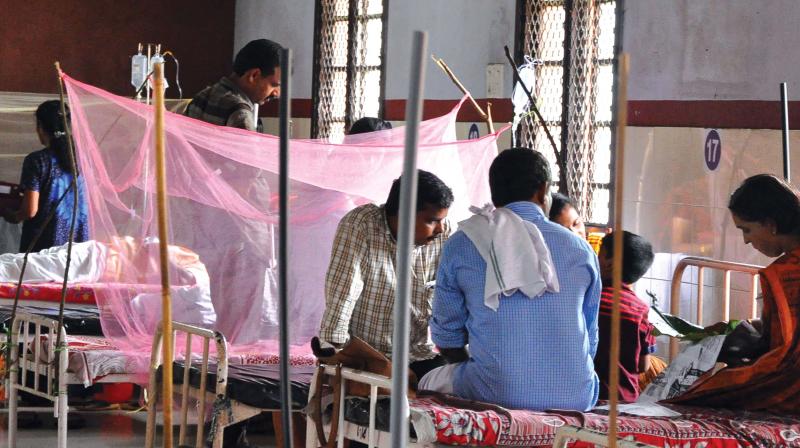Kozhikode: Downward trend in fever cases
Public, pvt health sectors fought jointly.

KOZHIKODE: Doctors of both private sector and public sector in the state heaved a sigh of relief as the number of fever cases registered a downward trend this week. Many of them feel that both sectors fought hand in hand when the state health care sector struggled to cater to the high number of patients that flooded the hospitals.
IMA state president Dr V.G. Pradeep Kumar told DC that the private hospitals had to convert all vacant places into wards to ensure treatment to patients. “All the government hospitals were overcrowded which made it essential for the private sector to chip on a war-footing,” he added. It was not jus hospitals: crisis brought together all including patients and kith and kin who had cooperated with hospitals to share rooms, wards and facilities to accommodate more.
“Dengue fever was the major destructive one of this fever season with high number mortality rates and morbidity,” he pointed out. Many hospitals even conducted fever clinics conducting tests free of cost, he said. Dr Pradeep Kumar said this is one recent crisis in which both sectors collectively contributed to save the precious lives.
1,194 cases reported on Thursday: DMO
1,194 cases of fever were reported on Thursday, according to the district medical office. Of this 57 have been admitted. 77 are suspected cases of dengue while one was a suspected case of leptospirosis. As many as 130 ADD (Acute diarrhoeal disease) cases were also reported. District Additional Medical Officer Dr Ashadevi said that the number of fever patients was declining.
“The health screening of migrant labours has begun with the support of the district administration. Chlorination and other precautionary measures are being carried out in areas having a considerable migrant population,” she said. Narikuni block tops in the number of dengue cases till July 31. Now dengue is reported more from Kozhikode Corporation limits.
As many as 10,483 patients visited the outpatient wing of various health centres in the district. The District administration has started a special programme for the health screening of migrant labourers. “The problem is that the labourers shift places according to the availability of work. That is hampering our work,” said an official at the Collectorate.

